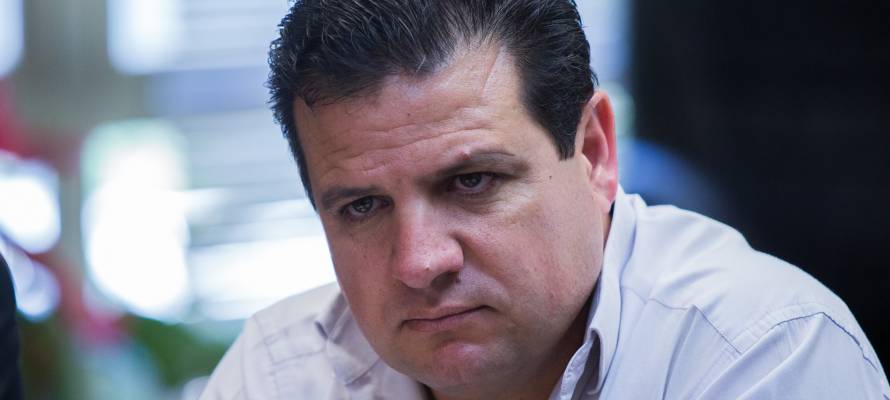An Arab-Israeli lawmaker conceded that the Palestinian Arab leadership in 1947 should have accepted the UN partition plan for separate Jewish and Arab states in British-Mandate Palestine.
Israeli parliamentarian Ayman Odeh, head of the Joint List, a political alliance of four Arab-majority parties, said that the Arab political leadership erred in 1947 by not accepting the UN partition plan to create two states, one Jewish and one Arab.
Speaking on the Knesset TV channel’s “Political Bug” show, Odeh stated: “I have no doubt that the Palestinian Arab leadership made a mistake when it did not accept the partition plan in 1947, but I want to try to understand it.”
Adding to his inaccurate narrative regarding the historical context, however, he claimed that the Arabs were “the natives of this place, and suddenly came the Jews with the Zionist idea of a Jewish home – a Jewish home, not a home of all its citizens, but a Jewish home with a story of two thousand years.”
In fact, at the time of the creation of the Jewish state, the land was part of the area administered by the British Mandate authorities since 1917. For four centuries prior, it belonged to the Ottoman Empire.
The cultivation of what had been known as Palestine prior to the establishment of the State of Israel (named Palaestina by Roman King Hadrian in the 2nd century in an attempt to erase Jewish identification with the land of Judea), began only with the return of Jews in massive numbers in the 20th century. The Jewish population, as explained by Jewish Virtual Library, increased by 470,000 between World War I and World War II, while the non-Jewish population rose by 588,000. The Arab population increased 120 percent between 1922 and 1947. Many of these non-indigenous Arabs arrived in Palestine to take advantage of the economic opportunities the Jews introduced into the area.
Odeh is also head of the radical-left Hadash party, one of the four belonging to the Joint List. A party spokesperson confirmed to The Jerusalem Post on Monday that Hadash accepted the partition plan in 1947.
In September, when hostilities came to a peak at the Temple Mount, Judaism’s holiest site, Odeh defended the anarchists, include fellow Knesset Member Jamal Zahalka, who hurled abuse at Jewish visitors. “The al-Aqsa Mosque belongs to the Muslims, and the only way to defend it is to continue our struggle for the end of the occupation and the establishment of a Palestinian state in the 1967 lines whose capital is East Jerusalem,” Odeh declared.
Nazareth Mayor Ali Salam recently slammed Odeh and other Arab-Israeli Knesset members for destroying any chance for coexistence among Jews and Arabs. Several MKs from the Joint Arab List have been organizing and leading protests against Israel, including a demonstration in Nazareth last month that turned violent. Salem said he saw Odeh at that protest and told him to leave.
By: United with Israel Staff
(With files from Jewish Virtual Library)
